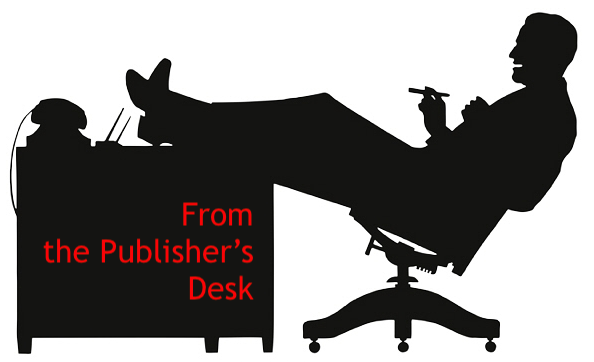 When 'I Think I Can' Becomes 'I Know I Must'
When 'I Think I Can' Becomes 'I Know I Must'
Motivation comes in varied forms: love, money, fear, greed, the full gamut of desires is in play when achieving an end becomes paramount.
Most people of a certain age are familiar with the children's story, "The Little Engine That Could", which teaches valuable life lessons in goal-setting, determination, and the value in being persistent. A brief refresher: the little engine kept trying to pull a disabled train over a mountain, saying, "I think I can, I think I can," trying, until it finally, persistently does, saying, upon reaching the peak and gliding down the other side, "I knew I could."
It's a morality lesson that isn't lost on most people, though from another perspective, the bigger train engines - all of which refused to take on the task - represent the self-important attitudes of elitists and "high" society, believing they are above mundane tasks like helping out others in distress.
Realistically, most of us are not in any way elite or bestowed with super-human powers or even multi-millions upon which to launch ourselves into the world occupied by those who consider themselves superior to the masses. Most of us have to work, strive, and suffer the world as it may be, complete with rules, regulations, laws, and guidelines preventing us from achieving our goals.
Obstacles are present in any worthwhile endeavor and the determined types find ways to overcome them. Those with lower aims and ideals conjure ways to work around the system, through theft, imitation, or other deviations. They may succeed for a time, but the world soon gets wise and renders them once again to the backwaters of society. Examples of those who circumvent the "rules" are plentiful. Corporations that purport to re-invent the wheel attract investors, steal their money, lose their good will and eventually fail or are punished by regulators. Criminals, who believe they shouldn't have to work in order to earn, rob stores, people, even banks, but usually have to repeat their offenses until they are caught and forced to pay for their crimes.
For the rest of us, especially those with ideas and aims for a better life, the exploits of the cheaters, the frauds, the dishonest create conditions not amenable to creative expression and human advancement. By setting ad examples for people to follow, they make achievements more difficult to attain.
But, for anybody who finds success, there comes a moment of clarity, when the obstacles become stepping stones, doubts are dispelled and courage replaces fear. That's the moment - as it was with the little engine - that what was once only possible becomes real, that the manifestation of thought makes reality bend to the unconscious will.
It's when one throws off all the constraints and commits fully to a goal that success becomes a certainty. It's when one's own well-being, even one's own existence is put up as collateral for an enterprise, for the achievement of a goal, that 'I think I can' becomes 'I know I must', and all opposition is washed away, pushed aside, as the power of an idea becomes reality.
There are those among us who exemplify this kind of thinking. People like Elon Musk or President Trump, who didn't get where they are today by taking half-measures or thinking that "maybe" this or that thing is possible. Trump didn't become president by thinking he might win. He invested all his time, effort, and knowledge to achieving what he knew was necessary for himself and the good of his country. And he won because the desire that burned inside him drove him to achieve what many thought - despite numerous obstacles and detractors aplenty - was impossible.
He even mentioned the triumph of will in his inauguration speech when he said, "In America, impossible is what we do best."
Whenever you're told you can't do something, or think a thing is too hard or too demanding, remember, nothing is impossible if a man or woman can dream it.
Dream big. It's worth every ounce of effort.
|
|||
| search engine by freefind |
Your ad could be in the next issue of idleguy.com for as little as $6 per month. Contact Fearless Rick using the form on page 12 for more information.
About this month's cover
This month's cover is a cut-away of a painting called City of Light, Paris, by Edouard Leon Cortes (1882-1969) was a French post-impressionist artist of French and Spanish ancestry. He is known as "Le Poete Parisien de la Peinture" or "the Parisian Poet of Painting" because of his diverse Paris cityscapes in a variety of weather and night settings.
Cortes was born on August 8, 1882, in Lagny-sur-Marne, about twenty miles east of Paris. His father, Antonio Cortes, had been a painter for the Spanish Royal Court.
At the age of 17, Edouard began his studies at the Ecole des Beaux-Arts in Paris. His first exhibition in 1901 brought him immediate recognition. Cortes stressed his independence. Once, in responding to a journalist who asked if he was a student of Luigi Loir, he replied, "No, a student of myself only."
He was awarded the prestigious Prix Antoine-Quinson from the Salon de Vincennes.
Cortes lived a simple life amid a close circle of friends. He died on November 28, 1969, in Lagny, and has a street named in his honor.